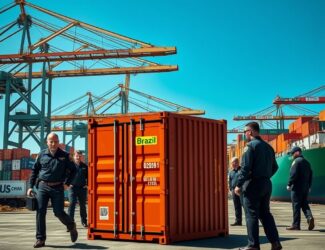
Economic Factors Prompt Russian Coffee Shops to Adjust Quality Standards
Russian coffee shops are considering a shift in their coffee quality standards due to currency exchange rate fluctuations and rising coffee prices. Sergei, the sales manager at RTC-Trading Rybenko, a company that imports green coffee beans to Russia, explained the potential reasoning behind this shift.
“Since coffee is primarily purchased in dollars, the current high exchange rates are substantially eroding purchasing power. As a result, it’s likely that coffee shop owners will opt for lower-quality coffee to counterbalance these economic challenges. The exchange rate’s impact on the consumer market now outweighs the fluctuations in Arabica and Robusta coffee stock prices. It’s important to note that this doesn’t necessarily reflect on coffee production, which continues to be sourced from Central America, Africa, and Asia. Importantly, there aren’t any indications of imminent changes in coffee supply from these countries,” Sergei emphasized in an interview with RIA Novosti.
In a response to these economic challenges, Alla Bondarenko, General Manager of TanukiFamily, acknowledged that “over the past year, the company has observed an increase in coffee purchase prices.” However, she emphasized that “we are currently maintaining our retail prices as an effort to mitigate profit margins while preserving customer loyalty.”
Sergei clarified that Arabica coffee prices have remained stable at around 150-160 cents per pound for the past 3-5 months, compared to 90-100 cents in 2020. Additionally, he noted that robusta prices reached $2.8 thousand per ton in June but have since decreased to $2.4 thousand. “Notably, the prices for basic Arabica and Robusta are now very close to each other, with minimal differences, especially in retail,” he pointed out.
Despite the economic pressures, experts believe that the entry of coffee chains like Shokoladnitsa into the retail market is not solely due to rising prices and supply issues.
Petr Kabin, founder of the paper manufacturer ProstoKap coffee glasses, shared his insight, stating, “For Shokoladnitsa, venturing into retail is a part of their natural development strategy. In the retail sector, they see opportunities for higher margins and brand monetization through additional product offerings. This strategic approach is widespread in the global coffee brand market.”
Oleg Suzhaev, founder and CEO of the Restik company, which serves 400 coffee shops across Russia, commented on the situation, highlighting that coffee shops have already worked diligently to select reliable suppliers and ideal coffee varieties and blends.
“The logical choice for them is to secure these products in larger quantities, boosting profits through additional sales. Another rationale for coffee shops selling coffee beans is to enhance customer retention and loyalty to their establishment,” Suzhaev explained.



